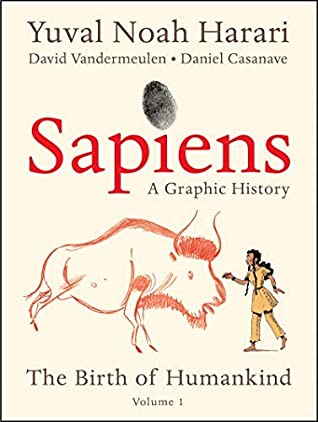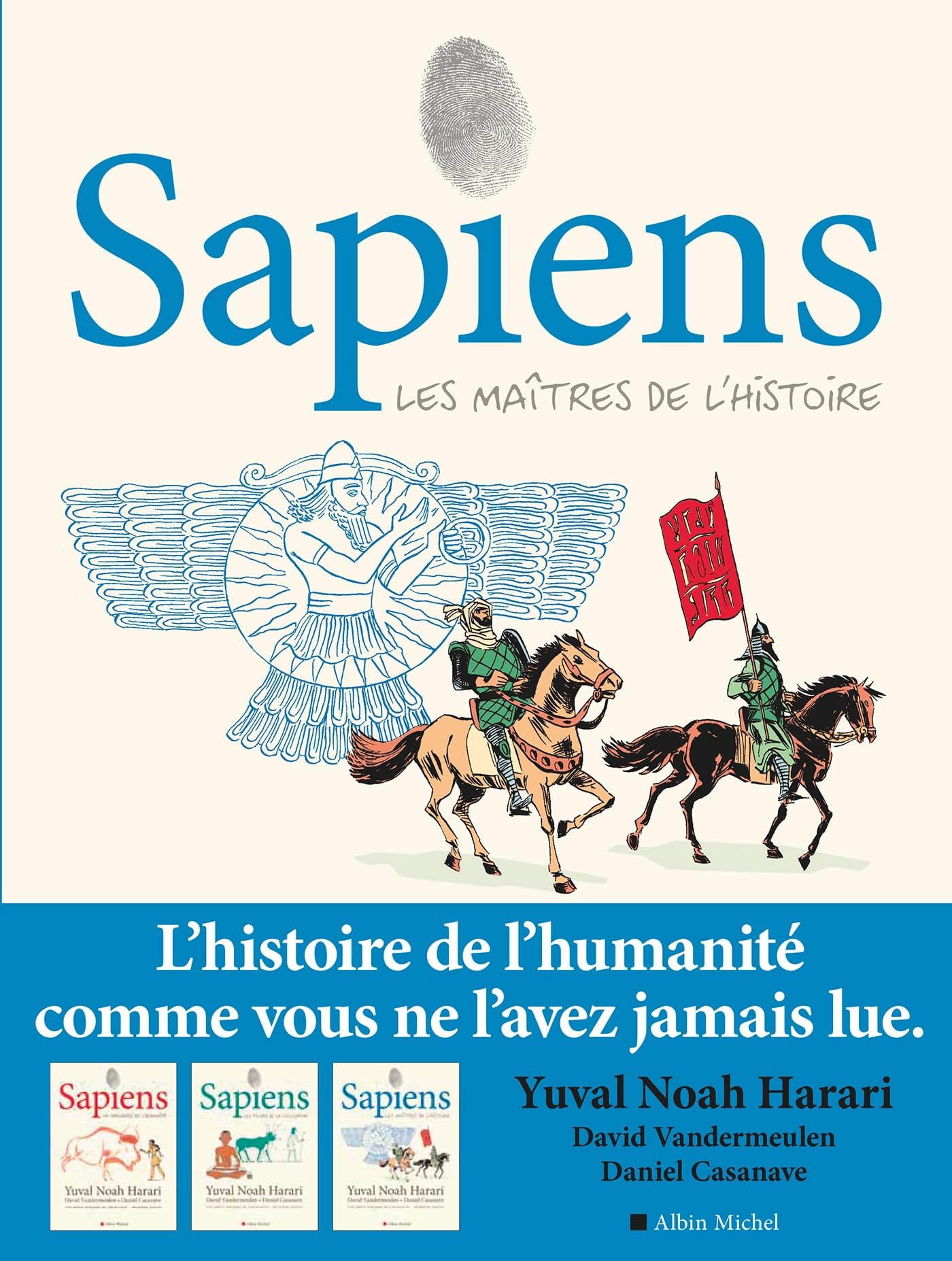Sapiens
A Graphic History, Volume 2 - The Pillars of Civilization
2021
This second volume of Sapiens: A Graphic History, the full-color graphic adaptation of Yuval Noah Harari’s #1 New York Times bestseller, focuses on the Agricultural Revolution—when humans fell into a trap we’ve yet to escape: working harder and harder with diminishing returns.
What if humanity’s major woes—war, plague, famine and inequality—originated 12,000 years ago, when Homo sapiens converted from nomads to settlers, in pursuit of the fantasy of productivity and efficiency? What if by seeking to control plants and animals, humans ended up being controlled by kings, priests, and Kafkaesque bureaucracy? Volume 2 of Sapiens: A Graphic History – The Pillars of Civilization explores a crucial chapter in human development: the Agricultural Revolution. This is the story of how wheat took over the world; how an unlikely marriage between a god and a bureaucrat created the first empires; and how war, plague, famine, and inequality became an intractable feature of the human condition.
But it’s not all doom and gloom with this book’s cast of entertaining characters and colorful humorous scenes. Yuval, Zoe, Prof. Saraswati, Cindy and Bill (now farmers), Detective Lopez, and Dr. Fiction, all introduced in Volume 1, once again travel the length and breadth of human history, this time investigating the impact the Agricultural Revolution has had on our species. The cunning Mephisto shows them how to ensnare humans, King Hammurabi lays down the law, and Confucius explains harmonious society. The origins of modern farming are introduced through Elizabethan tragedy; the changing fortunes of domesticated plants and animals are tracked in the columns of the Daily Business News; the story of urbanization is portrayed as a travel brochure, offering discount journeys to ancient Babylon and China; and the history of inequality unfolds in a superhero detective story; with guest appearances by historical and cultural personalities throughout such as Thomas Jefferson, Scarlett O'Hara, Margaret Thatcher, and John Lennon.
Sapiens: A Graphic History, Volume 2 is a radical, witty and colorful retelling of the story of humankind for adults and young adults, and can be read on its own or in sequence with Volume I.






